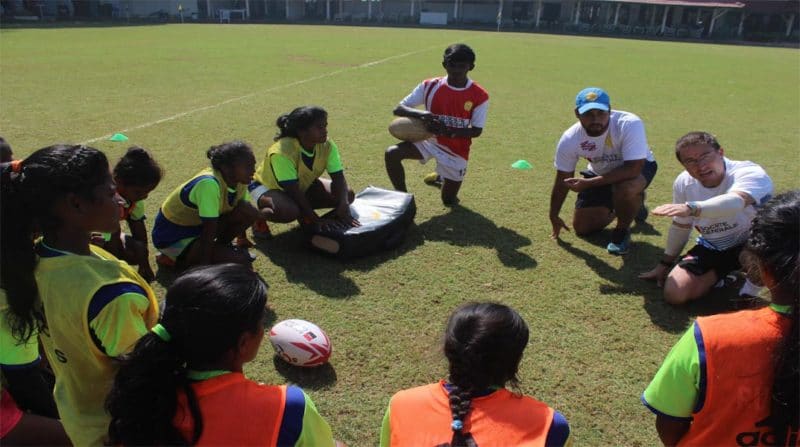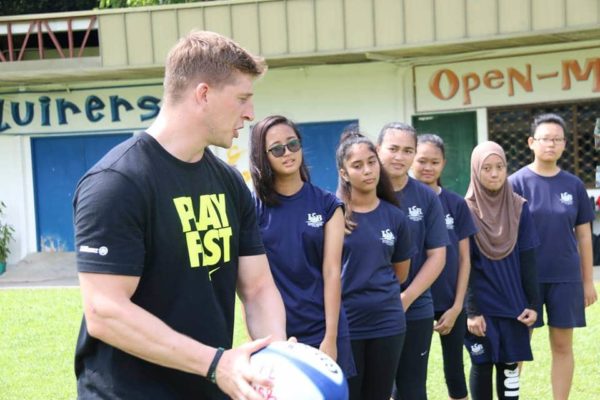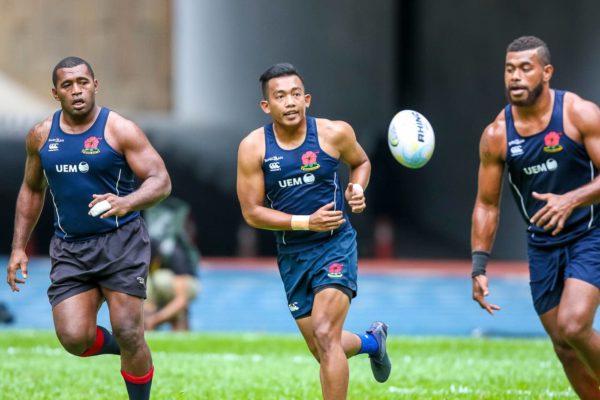Rugby Coaches face the challenge of training a number of different skills (e.g., passing and handling, rucking, attacking, footwork, and evasion) within a limited amount of time – perhaps just a few training sessions per week. So what is the most efficient way to structure practice sessions? Motor skill acquisition experts have examined the effectiveness of different practice structures.
To train a variety of different skills like passing, defending, and kicking, a coach might choose either blocked or random practice. A blocked practice session might look something like this: Players repeatedly perform passing drills before moving on to defending drills and finally kicking drills. Skills are trained one at a time in blocks – each block focusing on a particular skill. The rationale behind blocked practice is to encourage focused learning and fine-tuning of that skill with little interference.
Alternatively, random practice encourages practising a variety of skills in a quasi-random order such that the learner can only guess as to what is coming up next. Random practice might include an assortment of passing, kicking, and defending trials. Each trial focuses on a different skillset and the order is unpredictable; in its most radical format, no two consecutive trials will focus on the same skill.
Unsurprisingly, blocked schedules usually result in better performance than random schedules during practice. However, research has shown that random practice results in better performance at a later stage – like a competitive game situation, for instance.
Thus, the interference during learning that’s inherent in random practice actually results in better skill learning – a phenomenon referred to as the contextual interference effect.
Even within a particular skillset like passing, rugby coaches might ask players to continually perform passes to the same player at the same distance – say, 2 metres – until she is happy with their passing performance at that particular distance. This is referred to as constant practice.
On the other hand, varied practice would alter the passing conditions on every trial – in terms of players, passing distances (1.5 metres, 2 metres, 3 metres, etc), running speeds, and maybe even by using a variety of balls, such as tennis balls and basketballs in addition to rugby balls.
Varied practice is recommended if performance of the skill needs to be adaptable, as is the case for many skills in dynamic team sports. It should be noted that constant practice can be beneficial for some especial skills which are always performed in the exact same manner even during game situations, such as basketball free-throws.
Random and varied practice structures are recommended as they most closely represent game conditions. Nonetheless, during the very early stages of learning – for a beginner, or when introducing a new technique to a more seasoned player – blocked practice could help initially in formulating a basic template of how to perform an action.
References
Farrow, D., (1998) Some Considerations in the Application of Contextual Interference for Learning Sports Skills. Sports Coach, 21, No. 2, (pp. 28-29)
Schmidt, R. A., & Wrisberg, C. A. (2008). Motor learning and performance: A situation-based learning approach (4 ed.). Champaign, IL: Human Kinetics.
Rugby coaches guide: So many skills, so little time: How best to structure practice by Dr Neha Malhotra

She is a Postdoctoral Research Fellow at Nanyang Technological University and an Honorary Research Associate at the University of Waikato, New Zealand.
You can follow her @Nayhamal on twitter.
this is from a series of articles Neha Malhotra is writing for Asia Rugby
Other Articles By Neha
https://www.asiarugby.com/category/medical/neha-malhotra/




